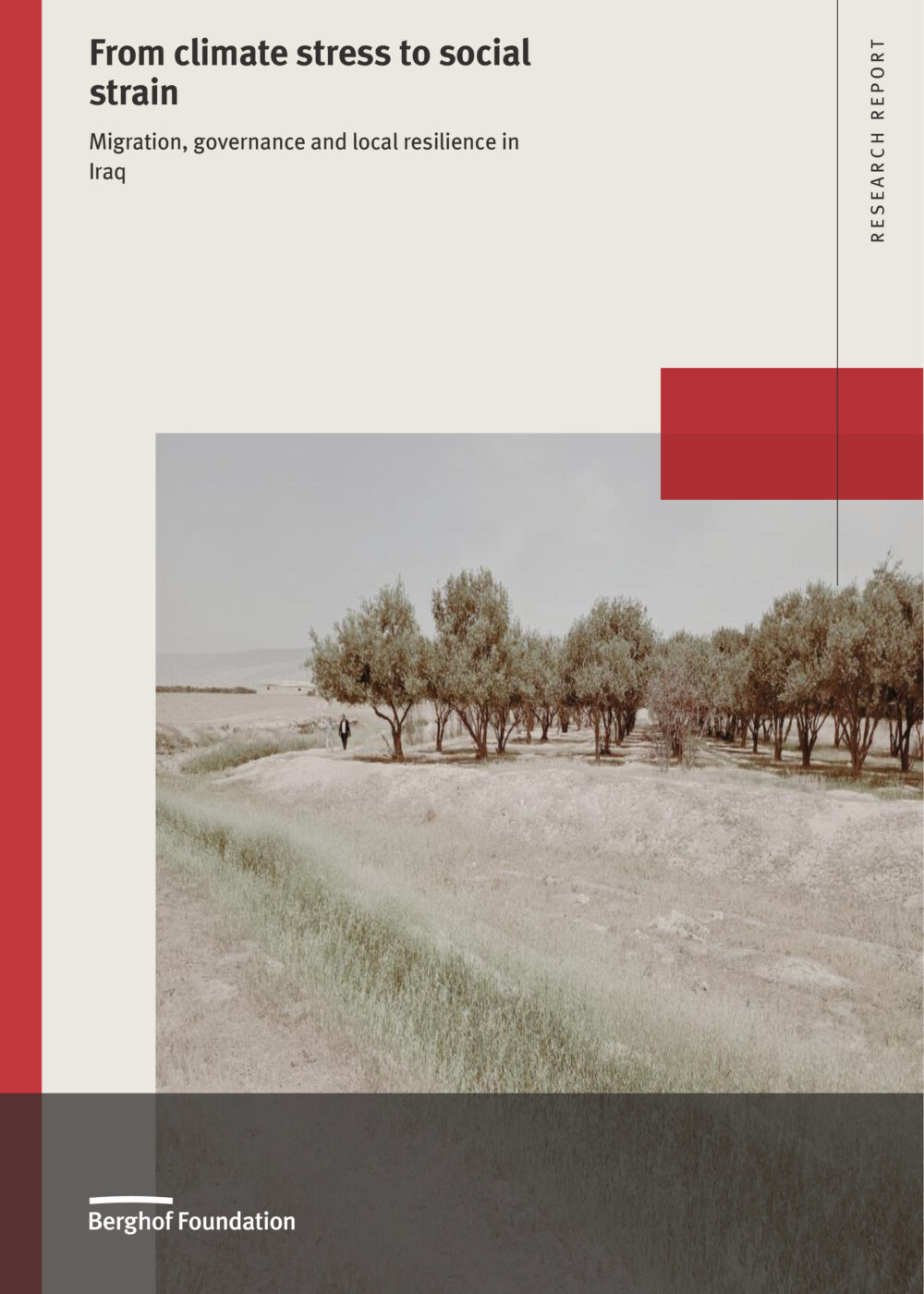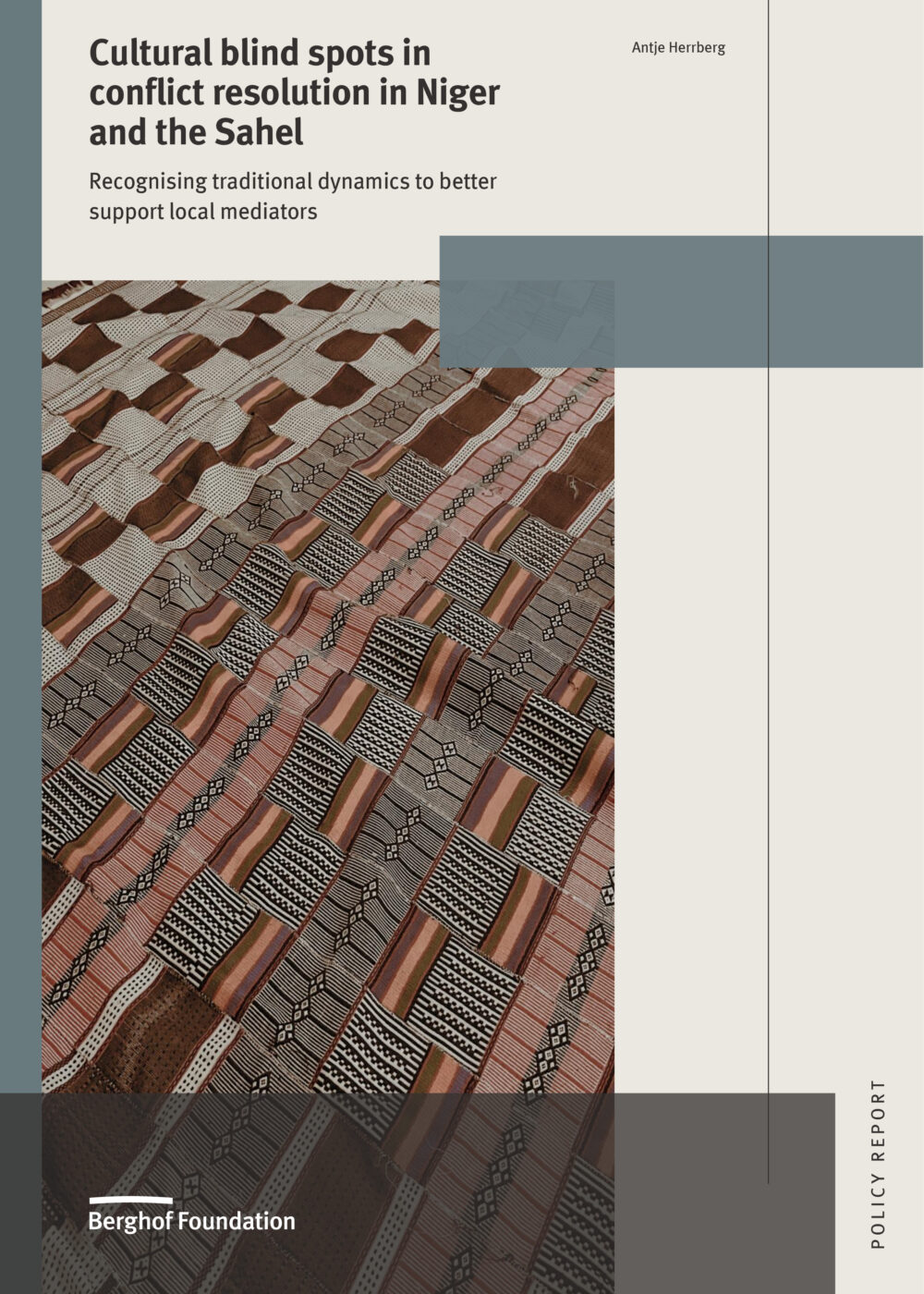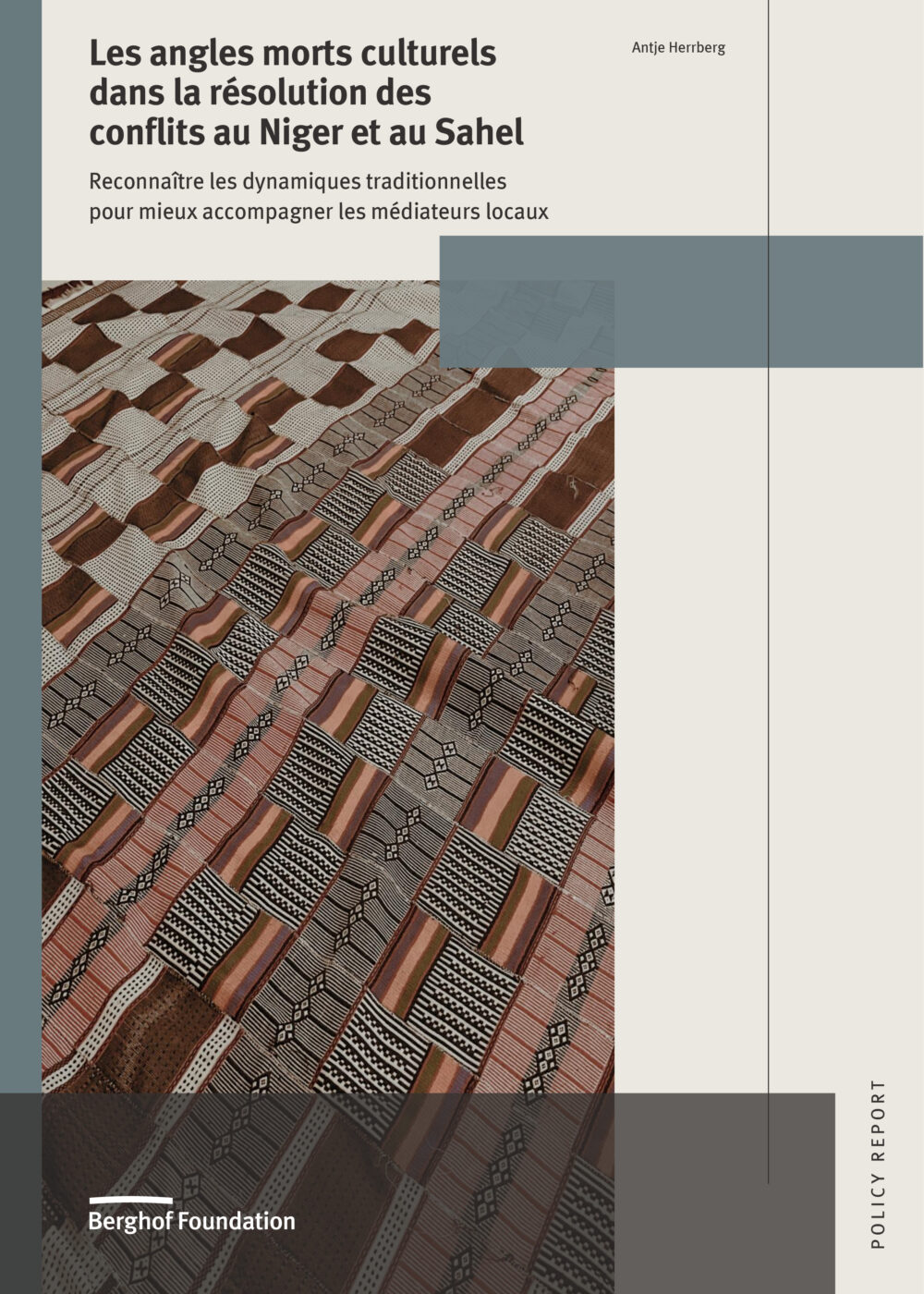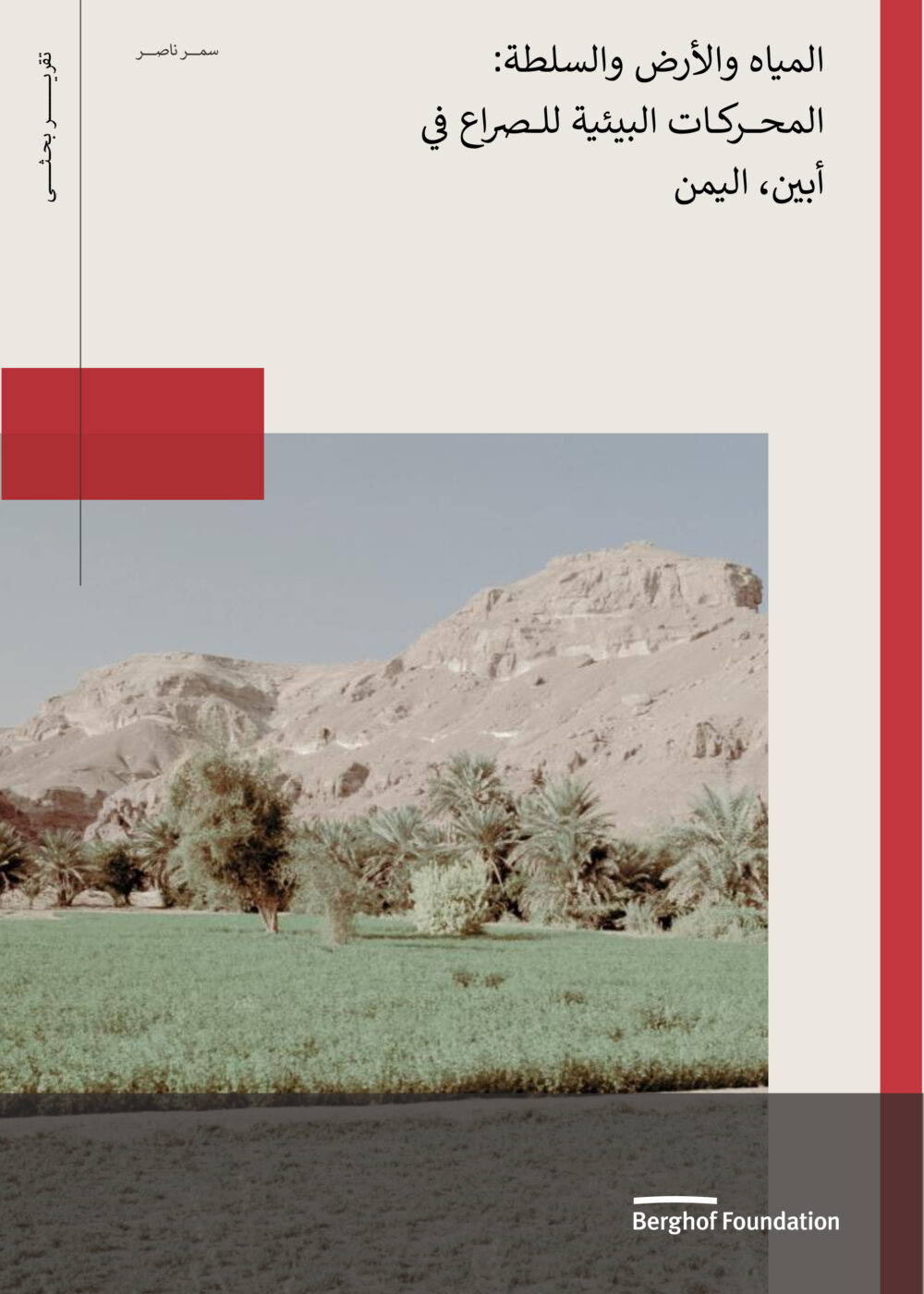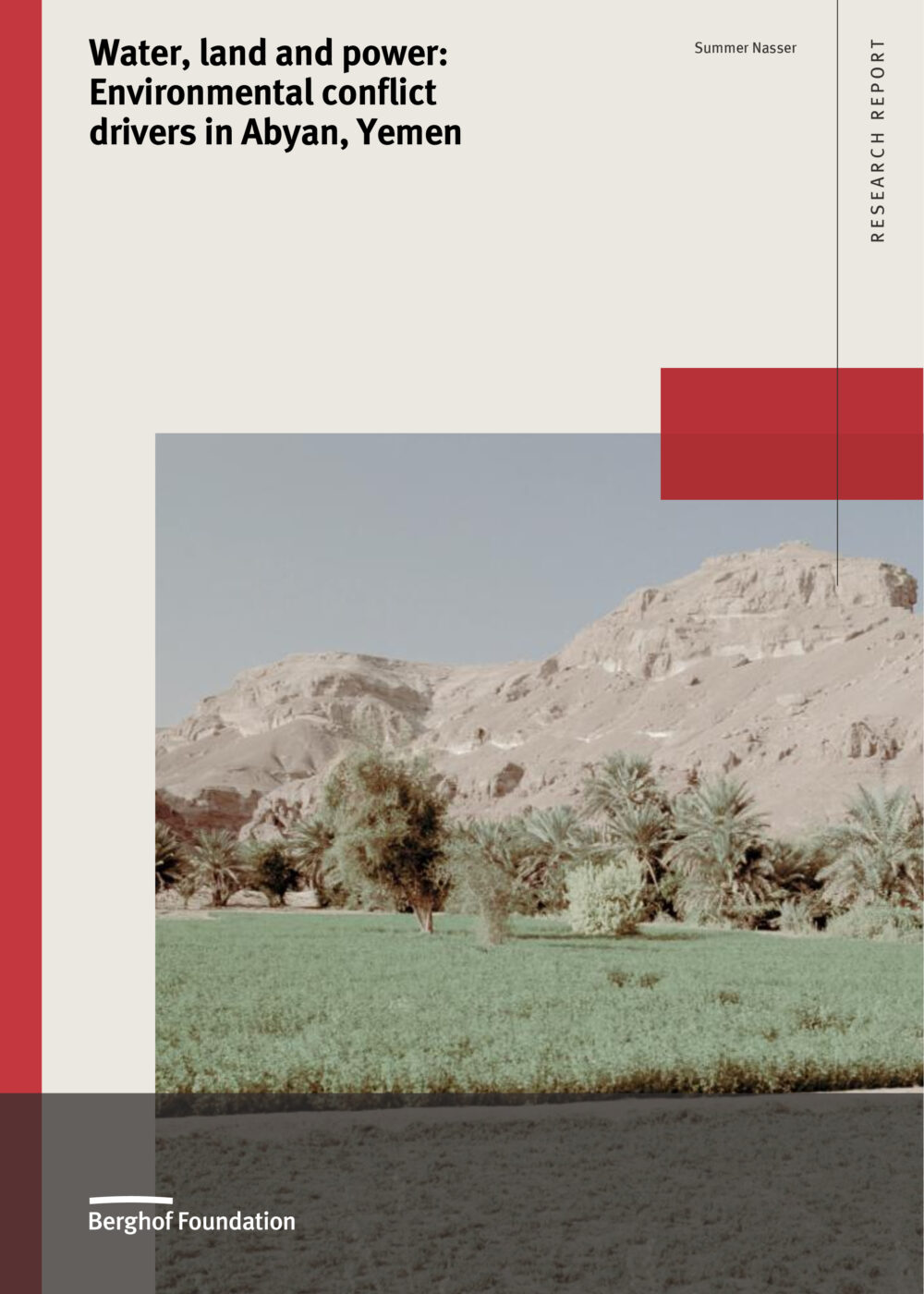1 Jan 2008
M-19's Journey from Armed Struggle to Democratic Politics: Striving to Keep the Revolution Connected to the People
Berghof Transitions Series No. 1
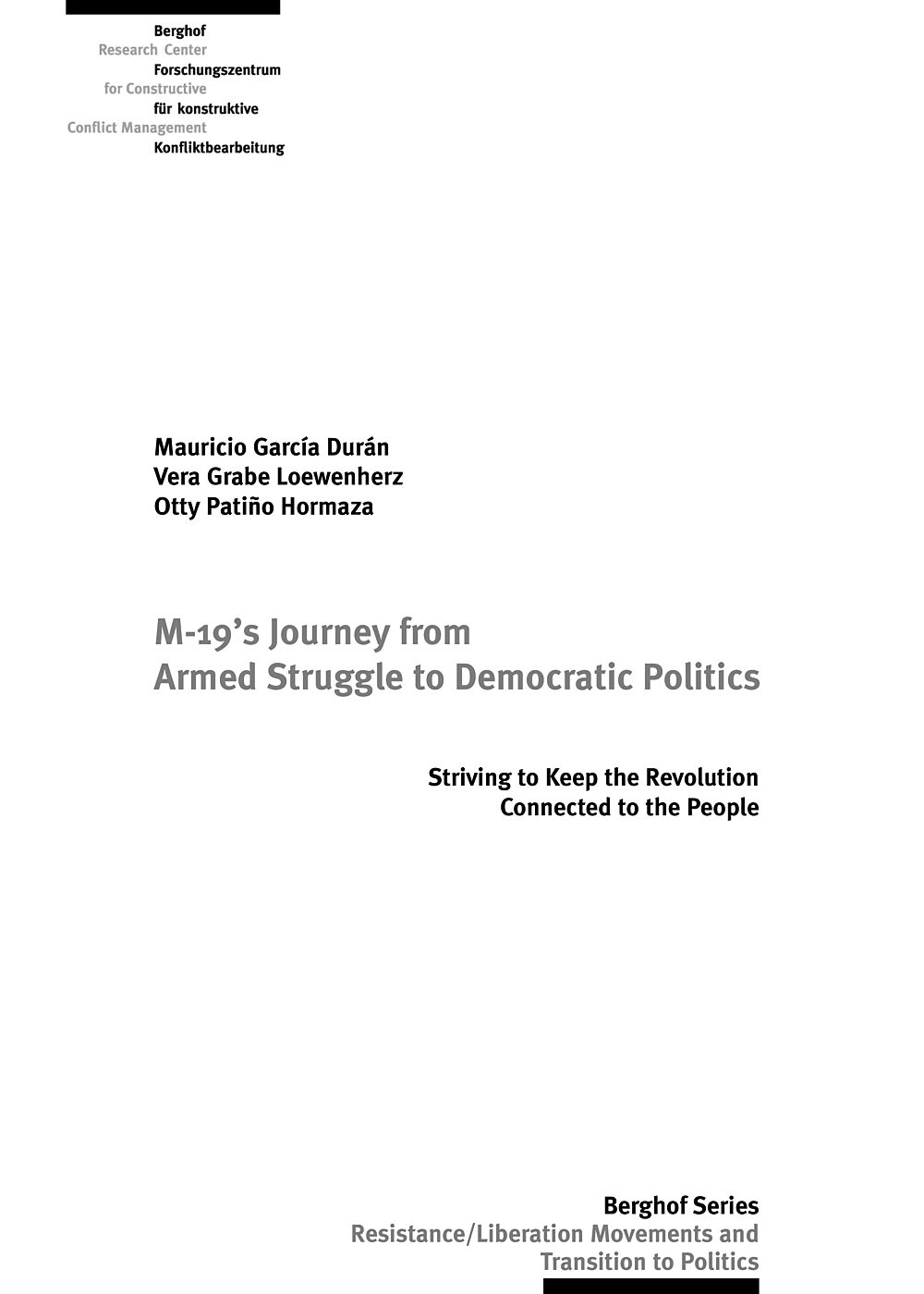
The case of Colombia is especially interesting as regards the transition of liberation or resistance movements from armed struggle to legal, political entities. Not only has it one of the longest guerrilla conflicts in the world (more than 40 years to date); it is also a place where experiments in peace-making with armed insurgents have been explored for more than 25 years. Various peace processes led to different peace agreements in the 1990s which made it possible for ca. 5,000 guerrillas to demobilise and reintegrate into social and political life. Although this did not signify the end of the armed conflict in the country, it entailed a series of political transformations which changed the context in which the nation developed and made a definitive solution to the conflict possible.
Authors
Mauricio García Durán, Vera Grabe Loewenherz, Otty Patiño Hormaza
Editors
Véronique Dudouet, David Bloomfield
The 19th of April Movement (Movimiento 19 de Abril, M-19) was the first of many guerrilla groups in Colombia to start a negotiation process that concluded in a final peace agreement involving its demobilisation as an armed group and leading to some of its members founding a new political party, the Democratic Alliance M19 (AD-M19) (Alianza Democrática M19). This not only paved the way for seven other groups to start peace negotiations and ultimately transform from armed to political actors. It also influenced reform of the Constitution, probably the most significant event of the twentieth century in Colombian politics, and the most important attempt at democratization of the country in its Republican period.
The 19th of April Movement (Movimiento 19 de Abril, M-19) was the first of many guerrilla groups in Colombia to start a negotiation process that concluded in a final peace agreement involving its demobilisation as an armed group and leading to some of its members founding a new political party, the Democratic Alliance M19 (AD-M19) (Alianza Democrática M19). This not only paved the way for seven other groups to start peace negotiations and ultimately transform from armed to political actors. It also influenced reform of the Constitution, probably the most significant event of the twentieth century in Colombian politics, and the most important attempt at democratization of the country in its Republican period.
About this Publication Series
This case study is one of a series produced by participants in an ongoing Berghof research project on transitions from violence to peace. The project’s overall aim is to learn from the experience of those in resistance or liberation movements who have used violence in their struggle but have also engaged politically during the conflict and in any peace process. Recent experience around the world has demonstrated that reaching political settlement in protracted social conflict always eventually needs the involvement of such movements. Our aim here is to discover how, from a non-state perspective, such political development is handled, what is the relationship between political and military strategies and tactics, and to learn more about how such movements (often sweepingly and simplistically bundled under the label of non-state armed groups) contribute to the transformation of conflict and to peacemaking. We can then use that experiential knowledge (1) to offer support to other movements who might be considering such a shift of strategy, and (2) to help other actors (states and international) to understand more clearly how to engage meaningfully with such movements to bring about political progress and peaceful settlement.
- Seeking State Power: The Communist Party of Nepal (Maoist). Transitions Series No. 3
Kiyoko Ogury. 2008
- The ANC and South Africa’s Negotiated Transition to Democracy and Peace. Transitions Series No. 2
Mac Maharaj. 2008
- The Politics of Transformation: The LTTE and the 2002-2006 peace process in Sri Lanka. Transitions Series No. 4
Suthaharan Nadarajah, Luxshi Vimalarajah. 2008
- From Politics to Arms to Politics Again: The Transition of the Gerakan Aceh Merdeka (Free Aceh Movement - GAM). Transitions Series No. 5
Agus Wandi, Wolfram Zunzer. 2008
- The Basque Country: The Long Walk to a Democratic Scenario. Transitions Series No. 7
Urko Aiartza Azurtza, Julen Julen Zabalo. 2010
- The Road to Peace in Ireland. Transitions Series No. 6
Bairbre de Brún. 2008
- The KLA and the Kosovo War: From Intra-State Conflict to Independent Country. Transitions Series No. 8
Armend R. Bekaj. 2010
- From Revolutionary War to Democratic Revolution: The Farabundo Martí National Liberation Front (FMLN) in El Salvador. Transitions Series No. 9
Alberto Martín Álvarez. 2010
- The CNDD-FDD in Burundi: The path from armed to political struggle. Transitions Series No. 10
Willy Peter Nindorera. 2012
- Le CNDD-FDD au Burundi: Le cheminement de la lutte armée au combat politique. Transitions Series No. 10
Willy Peter Nindorera. 2012
- “Living Freedom” – The Evolution of the Kurdish Conflict in Turkey and the Efforts to Resolve It. Transitions Series No. 11
Adem Uzun. 2014
- ETA’s disarmament in the context of international DDR guidelines: Lessons learnt from an innovative Basque scenario. Transitions Series No. 12
Basque Permanent Social Forum. 2017
- Peace Prevails: A Review of the Process to Peace and Reconciliation between the Afghan Government and Hezb-e Islami. Transitions Series No. 13
Mushtaq Muhammad Rahim. 2019
- سوله بریا ده. د افغان حکومت او حزب اسال مي تر منځ د سولې هوکړه لیک
Mushtaq Muhammad Rahim. 2019
- صلح پیروزی است. مروری بر پروسه صلح و مصالحه میان حکومت افغانستان و حزب اسلامی
Mushtaq Muhammad Rahim. 2019
Thanks for your interest
If you find this publication useful, please consider making a small donation. Your support enables us to keep publishing.



